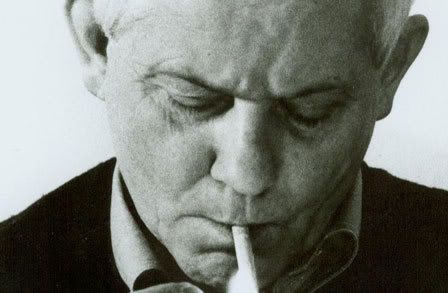
I'm of many minds when it comes to selecting poems for this series. (I really should stop calling it "Poem of the day," but hey. One blogger can only cover so much.) The former English Lit major in me wants to go in for deeper analysis of the familiar greats to find new angles (as with the Robert Frost I did previously), but the political scientist in me wants to dig in and find forgotten perspectives to illustrate history as written by the losers, by the unfortunate.
In the area of literature, there's always a suggestion that we cannot even understand other cultures, other mentalities, without living life in their own words. Accepting that there are limits to multilingualism, we must at least read works in translation before we can pretend to empathize with anyone. I do believe that to a powerful extent. I believe that cultural philosophies and realities are laid bare by linguistics; the Eskimos have more than a dozen words for ice, and that tells us something about their society. The Germans have specific words for emotions that cannot be described in fewer than 5 English words, and that tell us something (particularly given how many variations there are on feelings related to melancholy).
On the other hand, I find it greatly problematic that often the value of a work is judged not by its inherent goodness or badness, but by its context. Reading literature in this way shows a profound disbelief in the power of the human imagination. It suggests that artists are not creators, but that they are heavily constrained by the world around them. Which some certainly are, but I think that diminishes the beauty of words themselves.
But now I'll come to Zbigniew Herbert, the author of today's poem. He was a key member of the Polish resistance in WWII, which today overshadows his considerable skills in poetry and literature. But politics are essential to Polish literature: in the Stalinist era, socialist realism was the required style in both art and literature. Herbert refused to participate in this, however, so he was unable to publish until 1957. So it is said that all the varying political trends, failures and malfeasance that Poland faced in the 20th century snakes through all of Herbert's poetry, simmering just under the surface. While I'm not sure I agree with that accepted thesis, one cannot deny the undercurrents of hopes dashed, of crushing disappointment, of ideals replaced by cheap desires, that sits in this poem.
Silk of a Soul by Zbigniew Herbert
Never
did I speak with her
either about love
or about death
only blind taste
and mute touch
used to run between us
when we absorbed in ourselves.
we lay close
I must
peek inside her
to see what she wears
at her centre
when she slept
with her lips open
I peeked
and what
and what
would you think
I caught sight of
I was expecting
branches
I was expecting
a bird
I was expecting
a house
by a lake great and silent
but there
on a glass counter
I caught sight of a pair
of silk stockings
my God
I’ll buy her those stockings
I’ll buy them
but what will appear then
on the glass counter
of the little soul
will it be something
which cannot be touched
even with one finger of a dream
(Translated by Alissa Valles)


A good selection, and a reminder that desire (esp. emotion-based) is always thwarted by reality. Tonight we will still all go to bed with our dreams and wake up tomorrow to try again. Thanks for stopping by BellemeadeBooks....
ReplyDeleteMy pleasure and thanks for coming around and commenting!
ReplyDeleteWonderful! Love Ziggy!
ReplyDelete